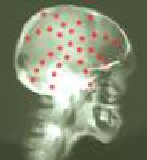
TUESDAY, April 13 (HealthDay News) — Some anticonvulsants used to treat epilepsy and other conditions may increase the risk of suicide, attempted suicide or violent death, a new study finds.
While these drugs are used primarily to control epileptic seizures, they are also approved treatments for other conditions, such as bipolar disorder, mania, migraine and chronic nerve pain.
“Anticonvulsant medications have important therapeutic benefits, but they also have associated risks that both provider and patient need to remain aware of,” said study author Dr. Elisabetta Patorno, a research fellow at Brigham and Women’s Hospital and Harvard Medical School in Boston.
“Physicians should discuss associated risks and benefits with their patients, and together determine the best treatment course for the underlying medical condition,” she said. “Both patients and health-care professionals should be alert to early symptoms that might potentially be associated with suicidal risk.”
The report is published in the April 14 issue of the Journal of the American Medical Association.
For the study, Patorno’s group used the HealthCore Integrated Research Database, which has data on prescriptions and adverse side effects. Specifically, they looked at almost 300,000 patients aged 15 and older in 14 states who started taking anticonvulsant medications between July 2001 and December 2006.
During that period, the researchers identified 801 attempted suicides, 26 completed suicides and 41 violent deaths — 868 combined suicidal acts or violent deaths.
Patorno’s group found an increased risk of suicidal acts among patients taking the anticonvulsants gabapentin (Neurontin), lamotrigine (Lamictal), oxcarbazepine (Trileptal), tiagabine (Gabitril) and valproate, compared with people taking the anticonvulsant topiramate (Topamax).
In 2008, the U.S. Food and Drug Administration instructed manufacturers of anticonvulsants to include a label warning about the increased risk of suicidal thoughts or actions associated with these drugs.
“I do not think that the results should affect physician behavior at this time,” said Dr. Orrin Devinsky, director of the Epilepsy Center at NYU Langone Medical Center.
“Anti-epileptic drugs are used primarily in patients with epilepsy and patients with psychiatric disorders; both groups have well-known increased risk for suicidal behavior,” Devinsky said.
This study found the probability of suicidal acts after starting topiramate were relatively low compared to four other anticonvulsant medications, he said.
“The question is if there was a bias with regards to patients selected on these medications, and also whether these results, which were statistically significant, would be replicated and have clinical significance,” Devinsky said.
“It is possible that a new cohort would reveal a different profile, reflecting the random nature of the patient population and a selection bias of how doctors prescribe drugs,” he added.
Dr. Ewald Horwath, a professor of psychiatry & behavioral sciences at the University of Miami Miller School of Medicine, said the study may be misleading.
“The study did not take adequate account of why people were taking the anticonvulsant,” Horwath said. The authors noted that many of the people in the study were taking these drugs to treat bipolar disorder and depression, “conditions that are associated with higher suicide rates,” he said.
Horwath noted that another study of patients with bipolar disorder found these drugs actually decreased the risk for suicide.
More information
For more information on epilepsy, visit the U.S. National Institute of Neurological Disorders and Stroke.

